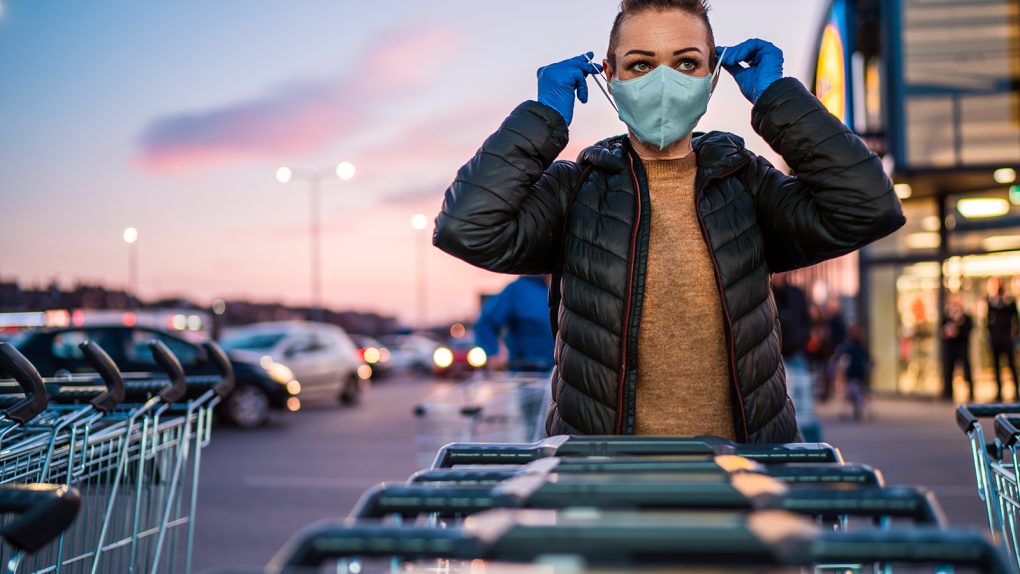- Researchers from Harvard found that a considerable number of asymptomatic grocery store workers tested positive for coronavirus at a time when face mask mandates were not enforced in a state.
- The scientists found that employees with direct customer contact were five times more likely to test positive.
- Grocery store staff are essential workers who are routinely exposed to COVID-19 transmission risks, especially in regions like the US that are dealing with significant outbreaks.
Personal protective equipment isn’t enough to prevent healthcare workers from getting infected with the novel coronavirus. Doctors, nurses, other hospital staff, and frontline workers have been exposed to the virus for months at work, and that’s on top of regular community transmission risks that everyone else faces. CDC tallies said back in August that more than 600 health care workers had already died of COVID-19 complications, although others have counted hundreds more. But medical personnel aren’t the only type of essential workers who are more likely to be infected with the novel coronavirus.
A brand new study identified an “alarming rate” of COVID-19 infection among the kind of workers you’re most likely to interact with on a regular basis. That’s grocery store workers, who are themselves constantly exposed to the risk of community COVID-19 transmission because of the nature of their jobs.
Researchers from Harvard found that 20% of 104 grocery workers from a Massachusetts store tested positive, and most of them had no symptoms when tested. A large proportion of COVID-19 cases are asymptomatic, but transmission also happens in the presymptomatic phase of patients who eventually experience symptoms. According to studies, these patients are contagious as early as two days before the first symptoms arrive.
The infection rate among grocery store workers was “significantly higher than the surrounding communities,” according to the paper. The study was first published in Occupational & Environmental Medicine. Employees with direct customer exposure were five times more likely to test positive, the researchers said.
“We did the study because a lot of emphasis during the initial months of COVID were put on healthcare workers, but not other essential workers,” Dr. Justing Yang told Fox News. Yang is an assistant professor at Boston University School of Medicine and researcher at Harvard TH Chan School of Public Health.
“I think there’s always a concern when one has close contact with someone else, such as in the instance of interacting with a sales clerk/cashier in a store,” Yang added. “Therefore, physical barriers (plexiglass) and wearing a mask would greatly reduce that risk of contracting SARS-CoV-2.”
While the percentage might sound scary, there is one detail that explains the unexpected findings. The study took place in May, and Yang noted that Massachusetts implemented a mask mandate after the study was posted. The CDC didn’t start advising the use of masks until early April. The more people wear face masks inside indoor settings like grocery stores, the lower the risk of transmission, and the better protection both customers and workers get.
“I do think for stores and states with mask mandate, we most likely would not see this kind of numbers,” Yang said. “But for stores and states without a mask mandate, this scenario could very well happen in other stores as well.”
The researchers said that similar studies from China indicated a 9.2% infection rate among supermarket workers.
Aside from the obvious risks related to contracting COVID-19, researchers say that grocery store workers also face additional mental health challenges. Those who can’t practice social distancing while on the job had a higher risk of developing anxiety or depression. Moreover, those who commuted to work using public transportation or shared rides were also more likely to be depressed than those who walked, biked, or used private cars.
“This is the first study to demonstrate the significant asymptomatic infection rate, exposure risks and associated psychological distress of grocery retail essential workers during the pandemic, which supports the policy recommendations that employers and government officials should take actions on implementing preventive strategies and administrative arrangements, such as methods to reduce interpersonal contact, repeat and routine SARS-CoV-2 employee testing, to ensure the health and safety of essential workers,” the researchers wrote. “Our significant mental health finding calls for action in providing comprehensive employee assistance services to help essential workers cope with the psychological distress during the COVID-19 pandemic.”
The study does have limitations, and the conclusions might not apply to the current state of the pandemic. The risk of infection might be a lot lower in communities where more people wear face masks and higher in places where people don’t wear masks or practice social distancing. The full study is available at this link.








